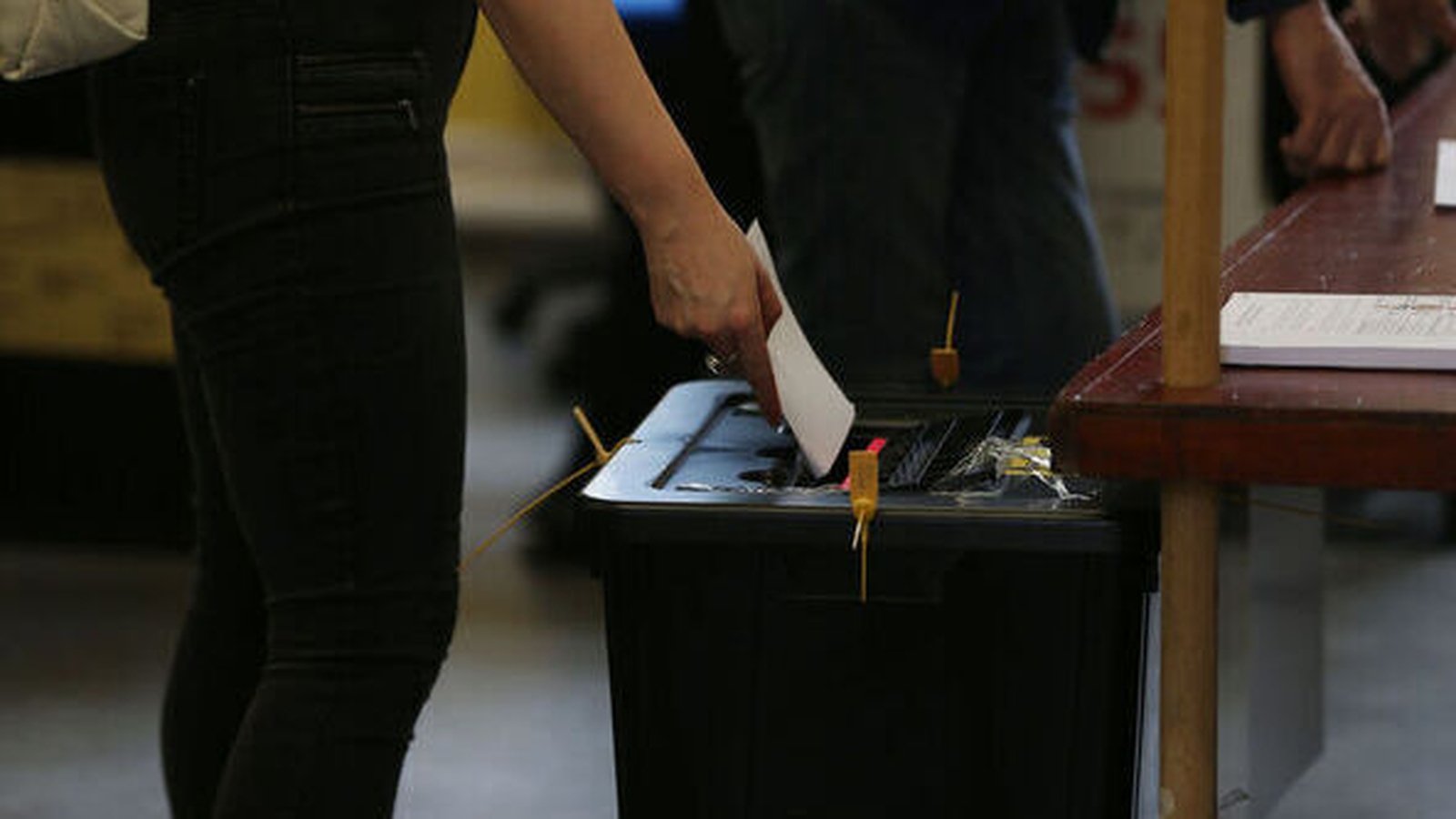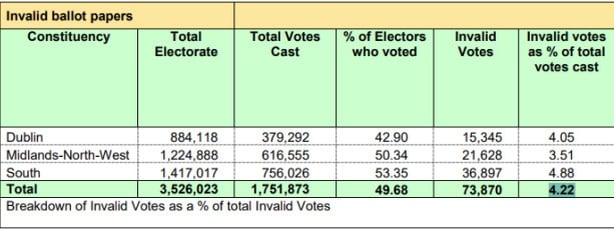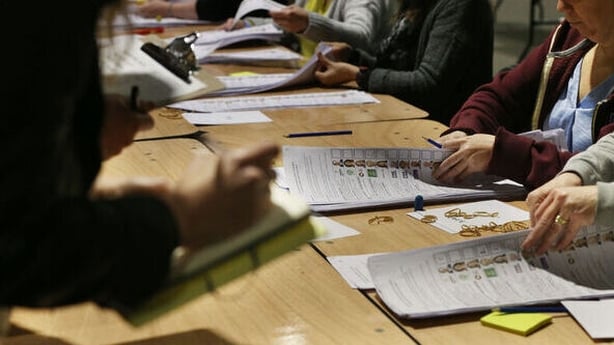World
5 things to know about the 7 June elections

What are we voting for on Friday 7 June?
There are three elections happening in one day: the European Parliament elections, the local elections and the first directly elected Mayor of Limerick.
Most of us will vote in the first two, while only those registered to vote in the Limerick city and county electoral areas can vote for the mayor.
How many seats are being filled?
European Parliament:
14 MEPs will be chosen to represent Ireland at the European Parliament.
Five will represent the constituency of Midlands North-West, and 27 candidates are running in the 15-county constituency.
Five will represent Ireland South, where 23 candidates are running across the ten counties.
Four will represent Dublin, where there are also 23 candidates on the ballot.
Some 373 million people across Europe are eligible to vote and will elect 720 MEPs.
The elections will be held across four days, starting with the Netherlands on 6 June, Ireland on 7 June (when Czechia starts two days of voting), more states will vote on 8 June and 20 countries in Europe vote on 9 June.
As a result, Ireland will not start counting European votes until 9 June, but results cannot be announced until voting concludes across Europe at 10pm Irish time.
Did you know? Estonia is the only country to allow e-voting in the EU.
Local elections
949 seats are to be filled in county and city councils in 166 local electoral areas in Ireland. There are 31 local government authorities.
More than 2,100 candidates have been selected or declared for the local elections this year, over 31% of whom are women, that is the highest number of women ever to run in local elections.
In 2014, 80 town councils were abolished as part of local government reform, reducing the number of councillors by more than 40%.
Did you know? You do not have to be an Irish or European citizen to vote in the local elections. Anyone normally resident in Ireland and registered to vote in their local electoral area, is entitled to do so.
Limerick mayor
One seat to be filled, in an important race seen as a test case for other cities in Ireland.
15 candidates are vying to fill the role, the term of which runs for five years and commands a yearly salary of €154,134.
Voters in Cork and Waterford were also polled about whether they wanted a directly elected Mayor, and they said no.
What’s the gender balance like?
Six out of 15 candidates in Limerick are women, so 40%.
24 out of 73 candidates running for the European elections in Ireland are women, which is just shy of one third.
41% of outgoing MEPs across Europe are women, while five of Ireland’s 13 outgoing MEPs are women. (There were six, but Mairead McGuinness took up the role of Ireland’s Commissioner in 2020).
31.4% of candidates running for local election this year are women, the highest ever number.
There were over 100,000 spoilt or invalid votes in 2019
An Coimisiún Toghcháin is urging voters to make sure they vote properly, after 108,488 spoilt and ineligible votes in the last Local and European elections.
The body, which is Ireland’s independent electoral commission, says the vast majority of ballots were not intentionally spoilt, and that the people who cast them have no idea their votes didn’t count.
In 2019, Ireland South had the highest proportion of spoilt votes in the three European constituencies with almost 5% of ballots (36,897) deemed invalid.

A spokesperson for An Coimisiún Toghcháin said that the most common example of spoiling was not making a clear indication of a voter’s first preference.
That could mean not writing a ‘1’ beside any candidate’s name or writing ‘1’ beside multiple candidates’ names.
The second most common reason a ballot could be rendered invalid is writing anything else on the ballot paper, even something as innocuous seeming as “Have a nice day!”.
He said this would usually render a ballot invalid.
The spokesperson said that sometimes people will write 1, 2, 3, 4, 5 on one paper e.g. for the locals and then continue with 6, 7, 8, 9, 10 on their European ballot which will then render the European ballot invalid.
The advice is; start every ballot with a 1 which you should put beside your favourite candidate.
Did you know? Using Roman numerals could render your ballot invalid, so best stick with “normal” numbers, also known as Arabic numbers, i.e. 1, 2, 3, 4, 5 and so on.
When will we know the results?
First things first, on Saturday morning, 8 June, ballots will be separated and bundled with local elections the first to be counted.
Tally people will be able to start tallying local candidates from early on as ballots will be bundled in a way that they’re visible (i.e. face up) but counting probably will not start properly until the afternoon as European ballots will have to be separated out and sent to the three constituency count centres.
Lecturer at Maynooth University, Adrian Kavanagh, says that the local elections usually can get done in one day of counting, all going well, as the constituencies are smaller than for a general election.
European election counts.
If past performance is anything to go by in the European Elections, it could take a while.
The Midlands North-West constituency has 27 candidates fighting for five seats.
Last time out, in May 2019, the count took four days and 13 counts to elect four MEPs.
This time there are five seats to fill so it’s flask of tea and tinfoil sandwiches territory.
Mr Kavanagh says Midlands North-West is the constituency to watch.
He is predicting a long count there as it is the largest constituency and it has two more counties now with Laois and Offaly joining.
However, he says that if five candidates pull away from the others early on, the count could wrap up more quickly.

The count in Ireland South was even more lengthy in 2019, after a full recount was requested by outgoing Sinn Féin MEP Liadh Ní Riada after the 18th count on the fourth day.
Counting continued for more than a week (excluding the bank holiday) and staff counted for seven days in total.
A spokesperson for the Cork City returning officer says turnout will have a huge impact on how long the count might take, and if the turnout is strong, it will inevitably be longer.
The Dublin constituency took three days to fill its four seats last time, with Fianna Fáil’s Barry Andrews taking the fourth and final seat after Britain left the European Union.
Limerick Mayor count:
Counting does not begin until Monday 10 June for the Limerick mayoral election and with a large quota (50% of valid votes plus 1) and 15 candidates, it could go late into the night, or even Tuesday before we know who gets the new gig.
Kieran Lehane, returning officer for the local election, predicts that counting in Limerick could be finished by Monday night if there is a fair wind behind them.
It is worth pointing out that if a TD gets elected to the role, Limerick will be facing another election, a by-election, to fill their Dáil seat.










